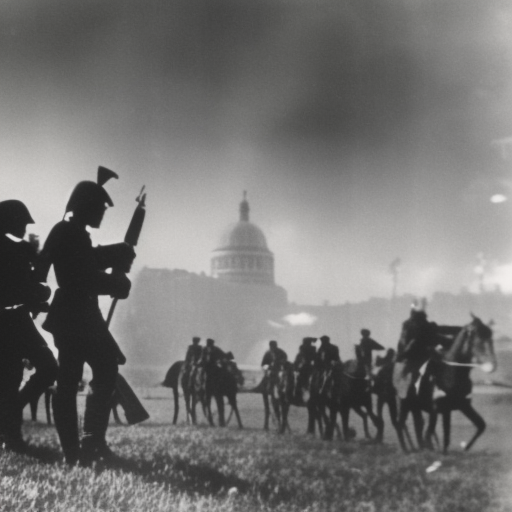The Napoleonic Wars (1803-1815)
The Napoleonic Wars were a series of conflicts fought between France, under the leadership of Napoleon Bonaparte, and various European powers. These wars had a profound impact on the political landscape of Europe and marked a significant shift in military tactics and warfare.
Causes of the Napoleonic Wars:
The main causes of the Napoleonic Wars can be traced back to the French Revolution and the rise of Napoleon Bonaparte. After seizing power in France, Napoleon sought to expand French influence and control over Europe. This led to conflicts with other European powers who were wary of French dominance.
Major Campaigns and Battles:
The Napoleonic Wars can be divided into several major campaigns and battles. One of the earliest campaigns was the War of the Third Coalition (1805), which saw Napoleon’s decisive victory at the Battle of Austerlitz. This victory solidified French control over much of Central Europe.
Another significant campaign was the Peninsular War (1808-1814), which saw Napoleon’s forces invade Spain and Portugal. The Spanish resistance, aided by British forces under the command of the Duke of Wellington, inflicted heavy losses on the French army. This campaign drained French resources and diverted Napoleon’s attention from other fronts.
One of the most famous battles of the Napoleonic Wars was the Battle of Waterloo (1815). This battle marked the final defeat of Napoleon and the end of his reign. British and Prussian forces, led by Wellington and Gebhard Leberecht von Blücher, respectively, defeated Napoleon’s army, forcing him to abdicate and go into exile.
Impact of the Napoleonic Wars:
The Napoleonic Wars had far-reaching consequences for Europe. They led to the redrawing of national boundaries and the collapse of several European empires. The wars also accelerated the spread of nationalism and the rise of nation-states.
The Napoleonic Wars also had a significant impact on military tactics and warfare. Napoleon introduced several innovations, such as the use of mass conscription and the formation of large, mobile armies. These tactics revolutionized warfare and influenced military strategies for decades to come.
Legacy of the Napoleonic Wars:
The legacy of the Napoleonic Wars can still be felt today. The wars contributed to the rise of industrialization in Europe as nations sought to rebuild their economies and strengthen their military capabilities. The wars also laid the foundation for the Concert of Europe, a system of diplomatic cooperation among major European powers aimed at maintaining peace and stability.
Furthermore, the Napoleonic Wars left a lasting impact on art, literature, and culture. The Romantic movement, which emphasized individualism, emotion, and the sublime, emerged in response to the upheavals of the era. Artists and writers, such as Francisco Goya and Lord Byron, captured the spirit of the times in their works.
In conclusion, the Napoleonic Wars were a series of conflicts fought between France and various European powers from 1803 to 1815. These wars had a profound impact on Europe, leading to the redrawing of national boundaries, the rise of nationalism, and the spread of industrialization. The military tactics and innovations introduced by Napoleon also revolutionized warfare. The legacy of the Napoleonic Wars can still be seen in the political, economic, and cultural landscape of Europe today.












